National
Seeking justice
Without a credible transitional justice roadmap, path will be open for specific and personally targeted prosecution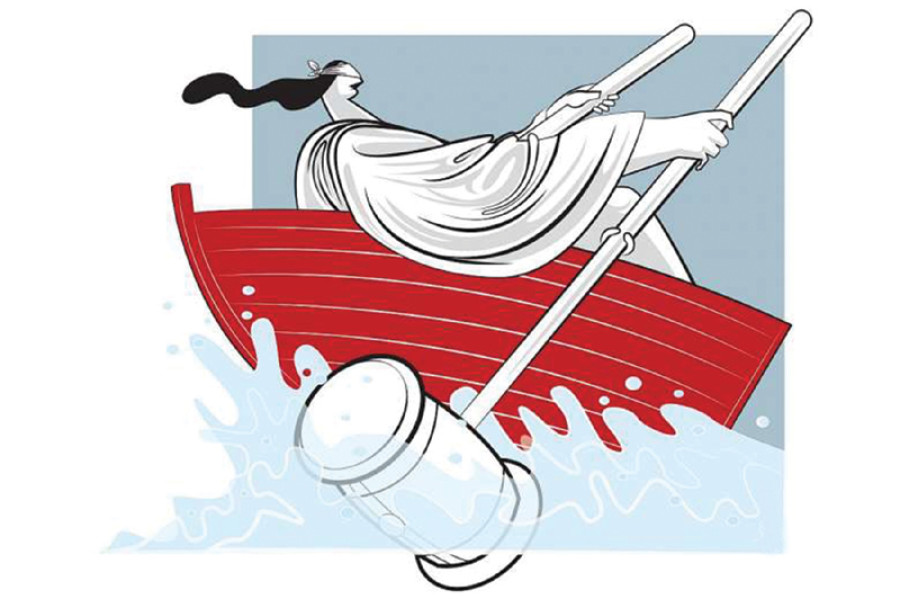
The campaign for accountability for human rights violations during Nepal’s armed conflict is presently at a crossroads. If we understand the context and the ramifications are identified, a positive conclusion seems within reach. It is important to conclude the peace process as the missed opportunities in the transitional justice (TJ) process during 2007-08 extracted an enormous toll on society and soaked up national and international resources. As a result of the mistakes made, Nepal’s TJ process became a subject in the UK courts, and is now discussed in Geneva and New York. Further, the Office of the United Nations High Commissioner for Human Rights (OHCHR) has published a ‘legal note’ expressing concern at the legislation that established the Truth and Reconciliation Commission (TRC) and the Commission of Investigation on Enforced Disappeared Persons (CIEDP).
Nepal’s Supreme Court has decided several TJ-related cases, and there is now clear judicial precedence to bring laws and procedures close to ‘international standards’. According to the court, the implementation of the TJ process must abide by the following criteria: (a) No amnesty or pardon for grave human rights violations such as extra-judicial killings, enforced disappearance, torture, rape and other acts of sexual violence; (b) Removal of the statute of limitations for such grave offences; (c) Prosecution of cases as recommended by the TRC and the CIEDP; (d) Criminalisation of torture and enforced disappearance through the enactment of laws; (e) Non-transfer of running court cases to the TRC or the CIEDP; and (f) Dignified and respectable reparation for victims.
Strengthening the process
Over the past few years, conflict victims have overcome their polarisation and overridden conflict-era divisions to establish a common platform to voice their concerns and keep tabs on the TJ process. They have become increasingly vocal and visible as they help each other in following up on the first information reports (FIRs) at police stations and subsequent court proceedings, taking their concerns to international forums, staging street protests and taking symbolic actions to highlight their demands.
Conflict victims have helped establish that prosecution in the regular court system is an essential element for Nepal’s TJ process, such as through the case of Dekendra Thapa. They have also helped establish the availability of ‘universal jurisdiction’ to Nepali citizens. Establishing the recourse to ‘universal jurisdiction’ was the underlying meaning of the Kumar Lama case. Victims’ groups have consistently voiced concern over lacunae in the relevant laws besides pointing out lack of independence of the two commissions. Some victims will receive reparation including compensation and prefer to remain silent thereafter, but there will be others who insist that the inadequacies of the TJ process be addressed.
It is notable that Nepal’s civil society is closely partnering with the victims to strengthen the TJ process, one which pays attention to the victims of conflict as well as the principles and philosophy involved. The activists have also brought some important cases to the Supreme Court and assisted in the evolution of this branch of jurisprudence. The Accountability Watch Committee, an umbrella organisation bringing together victims, lawyers and civil rights activists, has been a unique part of the TJ process. Nepal’s armed conflict had two sides, the Communist Party of Nepal (Maoist) and the security forces comprising the Nepal Police, Armed Police Force and the Nepal Army. While one side relies on the argument of having conducted an armed revolution for ‘political change’, the security forces point to ‘fulfilment of duty’ under orders from state authorities.
Points to consider
In order to make the TJ process complete and credible, the two former warring sides must be given a chance to put forward arguments in each and every case, and the accused must be judged fairly in relation to the alleged human rights violations. Neither side should be intimidated by threats of large-scale prosecution, and certainly every case should meet sentencing requirements in relation to evidence. It is vitally important thus to build the confidence of the two sides to participate in the TJ process. We must also keep in mind that taking cases to the International Criminal Court (ICC) is only possible through the UN Security Council, and under the circumstances, that is an unlikely scenario. We have, therefore, the remaining possibility of ‘international jurisdiction’ applying in courts of other countries but little possibility of recourse to the ICC. The ideal process would be to develop a credible domestic TJ process.
Analysing all aspects, our TJ process can be settled successfully if the following conditions are met: (a) The law establishing the TJ mechanism is amended in line with the decisions of the Supreme Court; (b) The law is changed in terms of criminalising torture and enforced disappearance; (c) A Special Court is established to hear cases from the TRC and the CIEDP; and (d) The credibility of the two commissions is built by adding a few commissioners and providing UN technical assistance. Even if we move towards a resolution in this manner, there will remain the central issue of what to do with the cases running in the courts. A large number of court cases filed by the police against the Maoist rank and file and a few cases registered by the victims exist in the courts. It seems that a compromise can be reached by transferring the cases filed by the victims to the Special Court and those filed on the basis of police FIRs to the TRC.
There also appears to be a large number of FIRs pending at police stations.
They are subject to the decision on a sub-judice matter before the Supreme Court in the Agni Sapkota case, and we need to wait until the Constitutional Bench reaches a decision on the matter. The other high-profile case is that of Bal Krishna Dhungel, and the person in question appears to have already served 40 percent of his jail term, and he may be released without much additional time once he surrenders to the state authorities.
Price of failure
The transitional justice discussions that have evolved over the last five months, from the previous government to the current one, appear to be on the right track. A breakthrough, however, will require commitment, diligence and the absence of subterfuge. In this context, the present government’s role is critical in paving the way towards a successful outcome. Equally important is the working ethos and method of the two commissions, which have a huge number of complaints to deal with. We are yet to see how they will facilitate the participation of the victims and other stakeholders.
Even if all the proposed reforms in the laws and procedures are successfully implemented, the transitional justice process will collapse if the two commissions fail to function to the highest principles and procedures. If that happens, we will have to go back to the drawing board, having wasted a full decade. In the meantime, without a credible transitional justice roadmap, the path will be open for specific and personally targeted prosecution in the courts. Sadder still, as seen in other parts of the world, when legal recourse is blocked, there may be those who will move on their own to exact personal revenge.
Phuyal is the immediate past Attorney General of Nepal




 9.12°C Kathmandu
9.12°C Kathmandu
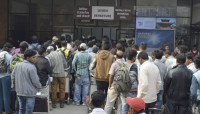

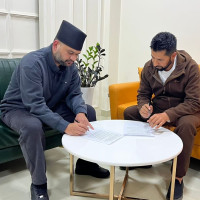




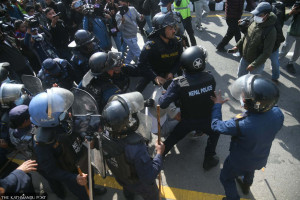
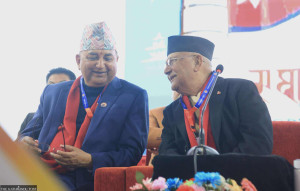



%20(1).jpg&w=300&height=200)

